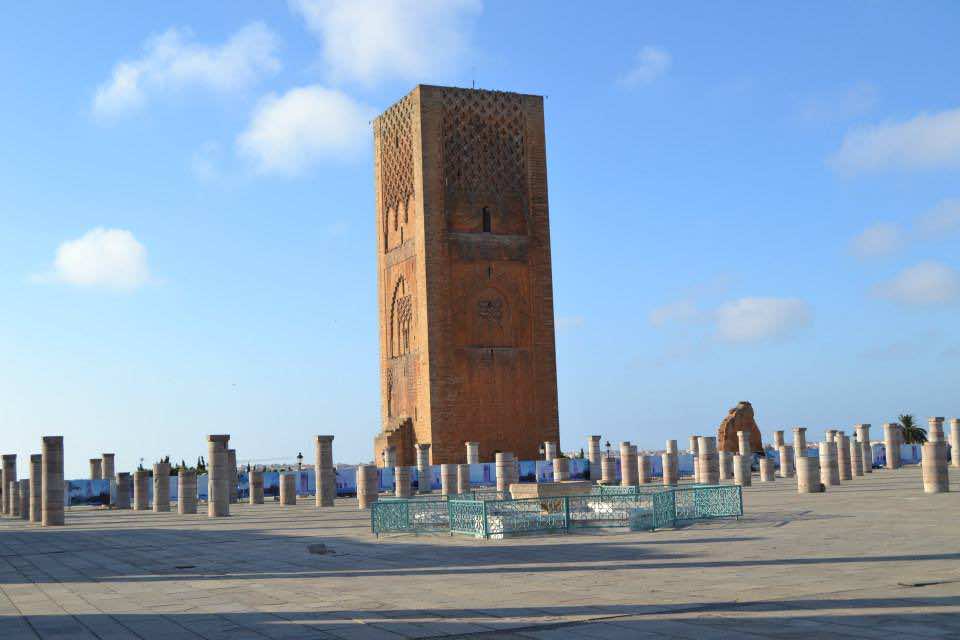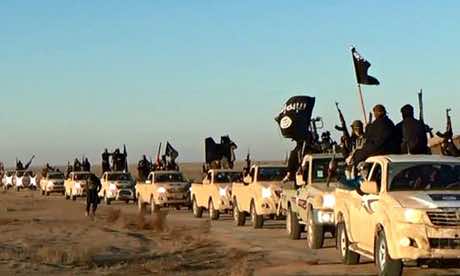![Genesis Roman Melgar in Morocco]()
By Genesis Roman Melgar
New York - Summarizing a vacation in Morocco in a short article would be impossible. Morocco has the beauty of different countries all wrapped up in one.
Every city is unique so much so that going from one to the other make visitors feel as if they had traveled to completely different places. It is a country with exceptional architecture, incredible landscapes, delicious cuisine, and unforgettable hospitality provided its citizens. Here are some highlights.
Casablanca and Rabat are the largest cities, more modernized compared to the others and definitely urban. In Casablanca, Make sure to visit the majestic, breathtaking Hassan II Mosque that overlooks the Atlantic Ocean and is the tallest minaret in the world. In Rabat, the Hassan Tower and the Mausoleum of Mohammad V are two famous touristic attractions, well worth the visit.
[caption id="attachment_120032" align="aligncenter" width="960"]
![Mosque Hassan II in Casablanca]()
Mosque Hassan II in Casablanca[/caption]
[caption id="attachment_106595" align="aligncenter" width="960"]
![Mosque Hassan in Rabat.]()
Mosque Hassan in Rabat.[/caption]
To admire inimitable architecture and have a more traditional Moroccan experience, visitors can travel a few hours away to Marrakech and Fez. I liked both equally, but for different reasons.
Marrakech is the colorful city. There are many “must do things and must visit places” there. The Jemma El- fna square offers the best freshly squeezed orange juice, served cold and made right in front of the costumer. The souk (market) was an amazing place to see and buy almost anything Moroccan. You could spend the whole day there admiring the handcrafted souvenirs, handmade carpets, lamps, teapots, handbags, and many other beautiful things.
[caption id="attachment_139131" align="alignnone" width="960"]
![Fresh Orange Juice in Marrakech]()
Fresh Orange Juice in Marrakech[/caption]
Fez is the traditional city. Very different from Marrakech, Fez is still a must-see. Women dress more conservatively in Fez, wearing veils much more than they do in Marrakech. The Islamic religious calls to prayer fascinated me, calling locals together for the sacred time. I enjoyed both listening to the sounds and observing people going to pray.
The old medina in Fez is such an enchanting place to be! Composed of thousands of narrow streets tourists might get lost if they don’t have a guide on their first visit. The captivating smell of scents, spices, food, and the to-die-for pastries give visitors a real taste of Morocco. The medina is also the place where women can spend countless hours shopping for beauty products, such as pure argan oil, natural oiled scents, perfumes, and beautiful traditional dresses such as caftans and gandoras made of beautiful fabrics.
[caption id="attachment_139132" align="aligncenter" width="960"]
![What about some Moroccan Slippers [Babouch] that serves all tastes?]()
What about some Moroccan Slippers [Babouch] that serve all tastes?[/caption]
A must do when vacationing in Morocco is staying in riads, hotels in or constructed like the traditional Moroccan houses and Fez has plenty to choose from. Most of these have a terrace on the roof that gives tourists splendid views of the areas around. Also, these are perfect places to admire traditional Moroccan decorations and architecture.
Away from modern and traditional, is the desert. The Sahara Desert is fantastic, but the experience is incomplete if the person does not spend at least one night there. Going with a group of friends can prove to be a fun adventure. Camel trekking in the sand while admiring the gorgeous sunset, laying on the sand at night listening to live Moroccan music, and sipping on mint tea while looking at the stars provide unforgettable memories.
![Sahara Desert in Morocco]()
Beach lovers, there are cities for you as well. Located on the coasts of Morocco, Tangier, Kenitra, Essauira and Agadir are among the cities that offer gorgeous beaches and breathtaking views. I fell in love with Kenitra, a small city in the North with an amazing beach, and lovely people. A visit to the Mehdia’s ruined Kasbah can give you a spectacular view of the sea and city. The opportunities for amazing photographs are endless.
The first visit to a hammam, or public bath, is definitely a memorable experience. Women, there is no time to be shy during the mostly nude process, just let yourself enjoy the experience. In the end, it is somewhat similar to going to a spa for three hours, but even better. The hammam leaves the person very relaxed, stress free, and very, very clean.
I purposely made Morocco my first abroad travel destination. As an open- minded woman that believes in equality, respect, tolerance, and most of all as someone that embraces all cultures and religions, I wanted to get the firsthand experience of a country very different from mine. On this trip, I had the chance to debunk the usual prejudices and misconceptions that many people have about Moroccan culture, people, and religion.
[caption id="attachment_117616" align="aligncenter" width="960"]
![Moulay Youssef Mosque in Rabat]()
Moulay Youssef Mosque in Rabat[/caption]
The usual phrases I often heard before traveling were “make sure you cover up well when you are in Morocco,” “be careful, people are very strict in their religions and customs” and “be safe, you never know what can happen to you in such countries.” Hearing these comments made me nervous, but I can honestly say that the fear vanished almost immediately, and in fact, I felt quite at home.
Moroccans are good people, very welcoming and respectful. People at the airport, hotels, vendors at the souks, taxi drivers, and everyone in general try to make tourists feel at home. If there is a prize for hospitality, Morocco deserves it. Every time I visited a Moroccan house or hotel, I was greeted with a friendly smile and good manners, not to mention the usual offer of the traditional Moroccan tea and delicious pastries.
[caption id="attachment_139130" align="aligncenter" width="960"]
![Moroccans eat sweets [Chabbakiya] with Harira]()
Moroccans eat sweets [Chabbakiya] with Harira[/caption]
Regarding language, even though Arabic and French are the main languages in Morocco, tourists manage to communicate in other languages as well. To my surprise, I found multilingual Moroccans, many speaking more than three languages. However, these multilingual locals are not everywhere; therefore it would be useful to know some French or Arabic before visiting Morocco.
As for dress code, there is no such thing for tourists. I was repeatedly advised by friends and others to pack as many conservative clothes as I could, even a veil. In fact, I eventually regretted not taking at least a knee length skirt or shorts. I was the only girl in my group of friends wearing floor length dresses, while the others wore short summer dresses and shorts. At the end, floor length or knee length, it doesn’t make a difference. Moroccans respect the way tourists are dressed. However, some male locals will still stare at female tourists walking in the streets regardless of how they dress. Women, this is common, just ignore them.
To conclude, Morocco is a country worth visiting. Its unique culture, architecture, history, food and beautiful landscapes, are just the beginning. The welcoming attitude makes you want to stay. I plan to visit again, some day, inshallah.
[caption id="attachment_139112" align="aligncenter" width="960"]
![Women's Cooperation of Argan Oil]()
Women's Cooperation of Argan Oil[/caption]
[caption id="attachment_139113" align="aligncenter" width="960"]
![Tanneries in fez Medina]()
Tanneries in fez Medina[/caption]
![The Moroccan Sahara]()
![In Fez, a mosque in the old Medina]()
[caption id="attachment_139119" align="aligncenter" width="960"]
![Items to buy while in Morocco]()
Items to buy while in Morocco[/caption]
[caption id="attachment_139128" align="aligncenter" width="960"]
![The Art of Presenting Moroccan Spices]()
The Art of Presenting Moroccan Spices[/caption]
[caption id="attachment_139135" align="aligncenter" width="957"]
![Enjoy the Best Juicy Watermelon in Morocco]()
Enjoy the Best Juicy Watermelon in Morocco[/caption]
© Morocco World News. All Rights Reserved. This material may not be published, rewritten or redistributed





![What about some Moroccan Slippers [Babouch] that serves all tastes?](http://www.moroccoworldnews.com/wp-content/uploads/2014/09/Moroccan-Babouch-slipers.jpg)


![Moroccans eat sweets [Chabbakiya] with Harira](http://www.moroccoworldnews.com/wp-content/uploads/2014/09/Moroccan-Sweets-and-Pastries-.jpg)
























